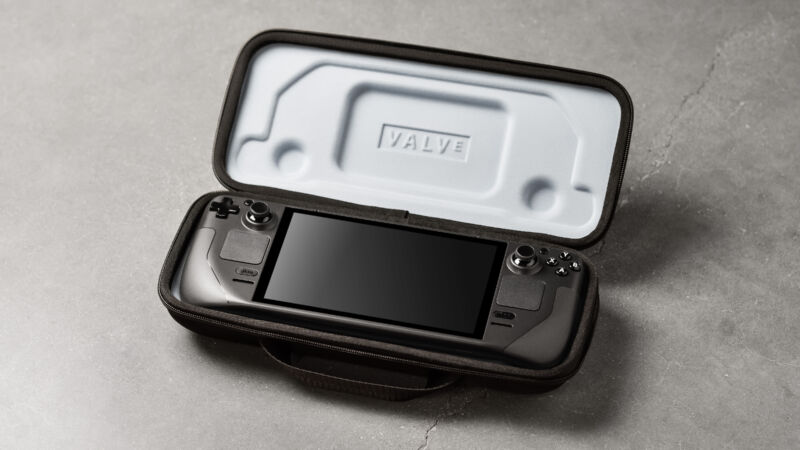
Valve
In our recent review of the Steam Deck portable console from Valve, we noted that continued updates to the company’s Proton compatibility layer would help many games designed for Windows run well on the system’s Linux-based SteamOS. For a handful of popular online multiplayer games, though, inherent limitations to anti-cheat support on Linux may prevent compatibility with SteamOS (and the vanilla Steam Deck) indefinitely.
That certainly seems to be the case for Destiny 2. In a recent update to the game’s help page, developer Bungie notes that “Destiny 2 is not supported for play on the Steam Deck or on any system utilizing Steam Play’s Proton unless Windows is installed and running.” Since Windows installation is currently not an option on the Steam Deck (due to some lingering driver issues), Destiny 2 players are simply left out of the Steam Deck party for the time being.
More than that, though, Bungie also takes the extreme position that “players who attempt to bypass Destiny 2 incompatibility [on the Steam Deck] will be met with a game ban.” That suggests there’s more than simple Proton functionality issues at play here.
Fortnite is similarly staying away from Proton/SteamOS for the time being, as Epic Games CEO Tim Sweeney tweeted last month. In that case, the longstanding rivalry between Epic Games and Valve might have something to do with the incompatibility. “Epic would be happy to put Fortnite on Steam,” Sweeney tweeted. “We wouldn’t be happy to give Steam 20-30% of its revenue for the privilege.”
In Destiny 2‘s case, though, the game has been available on Steam for years, and it was even ported to Stadia’s Linux-based streaming servers in 2020. What gives?
A matter of security
While Bungie hasn’t given detailed reasons for its strict anti-SteamOS stance, Sweeney’s statements regarding Fortnite for Linux may provide some clues. When Sweeney was pressed on why Epic wasn’t interested in porting Fortnite, he said, “We don’t have confidence that we’d be able to combat cheating at scale under a wide array of kernel configurations, including custom ones.”
We don’t have confidence that we’d be able to combat cheating at scale under a wide array of kernel configurations including custom ones.
— Tim Sweeney (@TimSweeneyEpic) February 7, 2022
On the surface, Sweeney’s suggestion that Linux games aren’t safe from cheating is a bit confusing. Last November, Valve confirmed that the popular BattlEye anti-cheat service (which is used in Destiny 2) had been integrated into Proton and that “all a developer needs to do is reach out to BattlEye to enable it for their title. No additional work is required by the developer besides that communication.” At the time, Valve even announced that six BattlEye titles would be compatible with SteamOS, including relatively popular games like DayZ and Arma 3.
In January, Valve followed that statement up by publishing instructions outlining how developers could also integrate Epic’s Easy Anti-Cheat (EAC, which is used in Fortnite) into their Proton-compatible titles with a simple toggle. That means EAC-using games like Elden Ring can get that valuable Steam Deck Verified badge indicating full compatibility.
But Valve’s Proton Anti-Cheat support documentation seems to hint at why some developers might not be satisfied with the current anti-cheat implementations on SteamOS. “We recommend using user-space anti-cheat components for best results, as they can typically run in the Wine environment and provide the same level of functionality,” Valve writes. “Kernel-space solutions are not currently supported and are not recommended.”